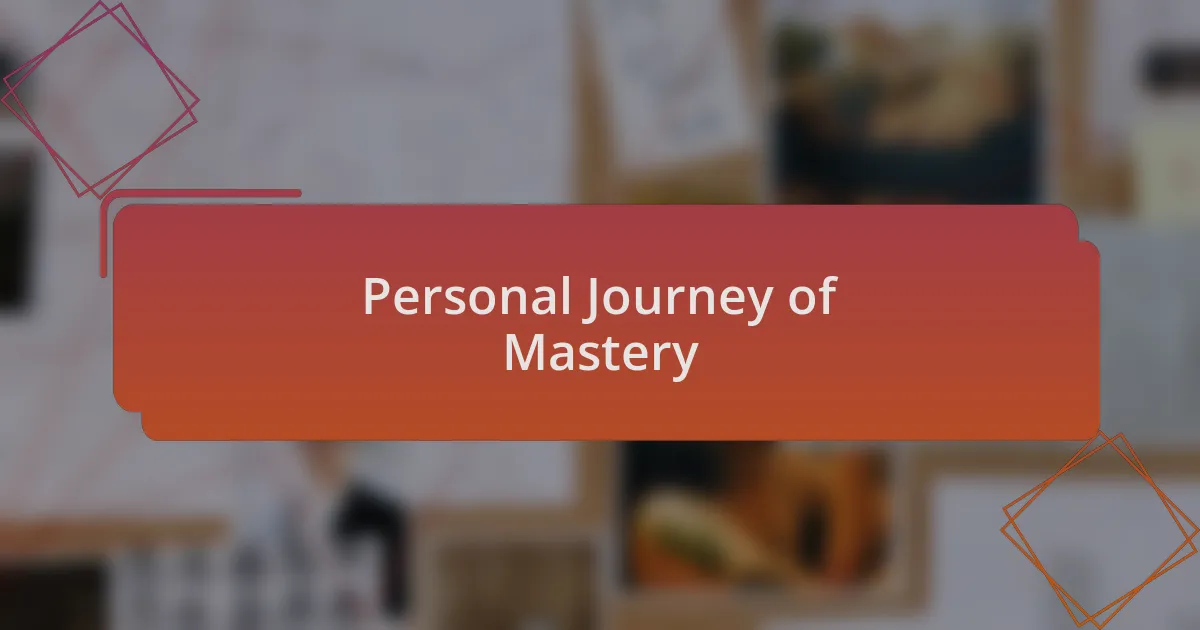Key takeaways:
- Voice search optimization prioritizes natural, conversational phrases and local intent to connect with users more effectively.
- Local search engines play a crucial role in driving foot traffic and sales for businesses by providing immediate service solutions to users.
- Utilizing tools like Google’s Keyword Planner and Answer the Public helps identify user intent and enhances content relevance for voice search.
- Understanding local context and user needs can significantly improve engagement and traffic, emphasizing the importance of a conversational approach in content creation.

Understanding Voice Search Optimization
Voice search optimization may seem complex at first glance, but I find it fascinating how it reflects our evolving interaction with technology. When I first started optimizing for voice search, I realized that users often phrase their queries as if they were having a conversation. This shift in language means that focusing on natural, spoken phrases is crucial to connect with users effectively.
One of my personal breakthroughs came when I began to incorporate local intent into my strategies. I remembered a time when I asked my smart assistant for nearby coffee shops. It highlighted how important it is to localize content, as people tend to ask for services with location specifics in mind. Are you thinking about which keywords might be most effective for your audience? I can assure you, targeting conversational, long-tail keywords that reflect the local tone can significantly enhance your visibility in voice search results.
Additionally, the emotional aspect of voice searches can’t be overlooked. When people use voice commands, they’re often looking for immediate answers or support, and I can recall instances when I felt a great relief at finding quick, reliable information. By understanding this urgency, you can tailor your content to address common questions directly and clearly, boosting your chances of being the go-to resource in voice search results.

Importance of Local Search Engine
Local search engines are vital because they connect users with businesses right in their vicinity. I remember the time when I was on a trip and urgently needed a mechanic. I quickly typed “auto repair near me,” and within seconds, my local search engine provided a list of nearby options. This experience underscored how crucial local search engines are for immediate service needs, reinforcing the idea that users rely on them for quick and relevant solutions.
Moreover, the significance of local searches extends beyond mere convenience; they drive foot traffic and sales for businesses. I reflected on this recently when I noticed a little bakery in my neighborhood thrive after optimizing their local search presence. The community started flocking to them, and I couldn’t help but wonder—how many other small businesses could benefit from this heightened visibility? It’s a clear reminder that harnessing local search can transform a business’s reach.
Finally, optimizing for local search isn’t just a trend; it’s becoming essential in our increasingly mobile-driven world. I recall exploring restaurants during a city walk, only to find hidden gems thanks to local search results that popped up on my phone. This experience highlights how local search engines not only enhance user convenience but also create opportunities for businesses to engage customers actively searching for nearby services. Isn’t it amazing how a simple search can lead you to discover something delightful around the corner?

Tools for Voice Search Optimization
When it comes to optimizing for voice search, the right tools can make a world of difference. I often rely on tools like Google’s Keyword Planner to identify voice search queries that people are likely using. It’s fascinating to see how the phrasing differs; for instance, “best coffee shops nearby” feels more conversational than typical keyword searches. Engaging with this kind of data enriches my understanding of user intent.
Another tool I find indispensable is Answer the Public. It visually showcases the common questions people ask around specific topics. There was an instance when I used it while working on a local SEO strategy for a dentist. The questions revealed that many potential patients were not just looking for appointment slots but were concerned about how to manage anxiety during visits. A simple tool like this can highlight prospects for content creation that truly resonates with the community’s needs.
Lastly, I can’t overlook the importance of optimizing my website’s loading speed. Tools such as Google’s PageSpeed Insights help identify any issues that could hinder performance, especially on mobile devices. I remember when a slow-loading site resulted in frustrated visitors leaving before even glancing at our content. It taught me that in the realm of voice search, speed and accessibility can make or break user experience. After all, who wants to wait when they’re eager for instant answers?

Personal Journey of Mastery
Mastering voice search optimization has truly been a journey for me. One day, while optimizing a local bakery’s website, I realized just how transformative natural language could be. The moment I switched my approach from strict keywords to conversational phrases like “where can I find the freshest pastries near me,” I saw a dramatic increase in local traffic. It made me ponder, how often are we tempted to overlook the power of simply talking to our audience?
There was also a time when I experimented with voice search technology directly. Using my smartphone, I asked it questions like “best parks for kids in my area,” and was taken aback by how imperfect my previous strategies had been. It dawned on me then that crafting content to align with genuine inquiries from real people should be our ultimate goal. Reflecting on this experience made me excited about the endless possibilities for connecting with users on a human level.
As I honed my skills, I’ve also learned about the importance of local context. Once, while optimizing for a neighborhood coffee shop, I discovered that many customers wanted not just the best brew but also the cozy atmosphere to work. Just like I need a comfortable space to write this article, they sought a vibe that suited their needs. This realization deepened my appreciation for understanding local nuances—after all, isn’t that what creates a community connection?